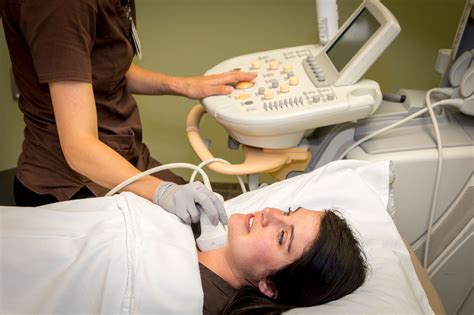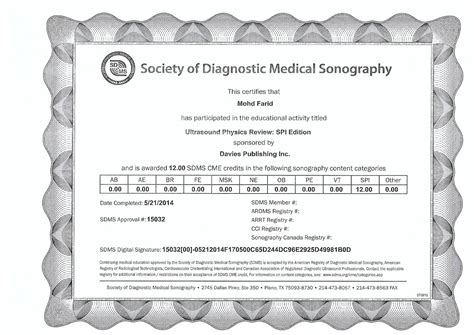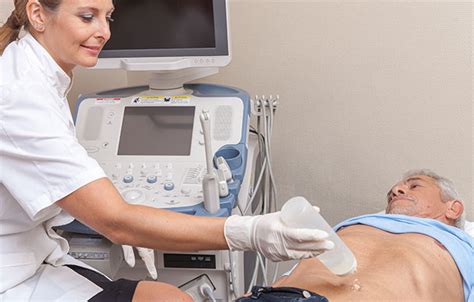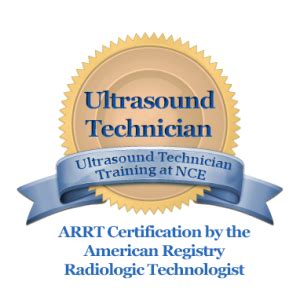Intro
Discover the path to a rewarding career in medical imaging with our 7-step guide to becoming an ultrasound technician. Learn about education requirements, certifications, and skills needed to excel in this field. Explore the world of sonography and start your journey towards a fulfilling profession in ultrasound technology today.
Becoming an ultrasound technician, also known as a diagnostic medical sonographer, can be a rewarding and challenging career. Ultrasound technicians use specialized equipment to create images of the body's internal organs and tissues, helping doctors diagnose and treat a wide range of medical conditions. If you're interested in pursuing a career in this field, here are the 7 steps to become an ultrasound technician:

Step 1: Earn a High School Diploma or Equivalent
The first step to becoming an ultrasound technician is to earn a high school diploma or equivalent. While in high school, focus on taking science and math courses, such as biology, chemistry, and algebra, to prepare yourself for a career in the medical field.
Step 2: Complete a Post-Secondary Education Program
Most ultrasound technicians complete a post-secondary education program in diagnostic medical sonography. These programs are offered at community colleges, universities, and vocational schools, and typically take two years to complete. Some common degrees for ultrasound technicians include:
- Associate of Applied Science (AAS) in Diagnostic Medical Sonography
- Associate of Science (AS) in Diagnostic Medical Sonography
- Bachelor of Science (BS) in Diagnostic Medical Sonography

Step 3: Gain Practical Experience
Many post-secondary education programs in diagnostic medical sonography include clinical internships or practicum courses, which provide students with hands-on experience in a medical setting. This practical experience is essential for developing the skills and competencies needed to become a successful ultrasound technician.
Step 4: Obtain Professional Certification
While not always required, obtaining professional certification can increase job prospects and career advancement opportunities for ultrasound technicians. The most common certification for ultrasound technicians is the Registered Diagnostic Medical Sonographer (RDMS) credential, offered by the American Registry for Diagnostic Medical Sonography (ARDMS).

Step 5: Maintain Certification and Continuing Education
To maintain certification, ultrasound technicians must complete continuing education requirements and adhere to professional standards. The ARDMS requires RDMS-certified technicians to complete 30 hours of continuing education every two years.
Step 6: Pursue Specialized Certifications
Ultrasound technicians can pursue specialized certifications in specific areas of sonography, such as:
- Abdomen and Small Parts
- Obstetrics and Gynecology
- Cardiac Sonography
- Musculoskeletal Sonography

Step 7: Join Professional Organizations
Joining professional organizations, such as the Society of Diagnostic Medical Sonography (SDMS) or the American Institute of Ultrasound in Medicine (AIUM), can provide ultrasound technicians with access to continuing education resources, professional networking opportunities, and advocacy for the profession.

Gallery of Ultrasound Technician Images
Ultrasound Technician Image Gallery










Frequently Asked Questions
What is the average salary for an ultrasound technician?
+The average salary for an ultrasound technician varies depending on location, experience, and specialty. However, according to the Bureau of Labor Statistics, the median annual salary for diagnostic medical sonographers was $68,750 in May 2020.
What kind of education do I need to become an ultrasound technician?
+Most ultrasound technicians complete a post-secondary education program in diagnostic medical sonography, which typically takes two years to complete. Some common degrees for ultrasound technicians include an Associate of Applied Science (AAS) or an Associate of Science (AS) in Diagnostic Medical Sonography.
Do I need to be certified to work as an ultrasound technician?
+While certification is not always required, obtaining professional certification, such as the Registered Diagnostic Medical Sonographer (RDMS) credential, can increase job prospects and career advancement opportunities for ultrasound technicians.
